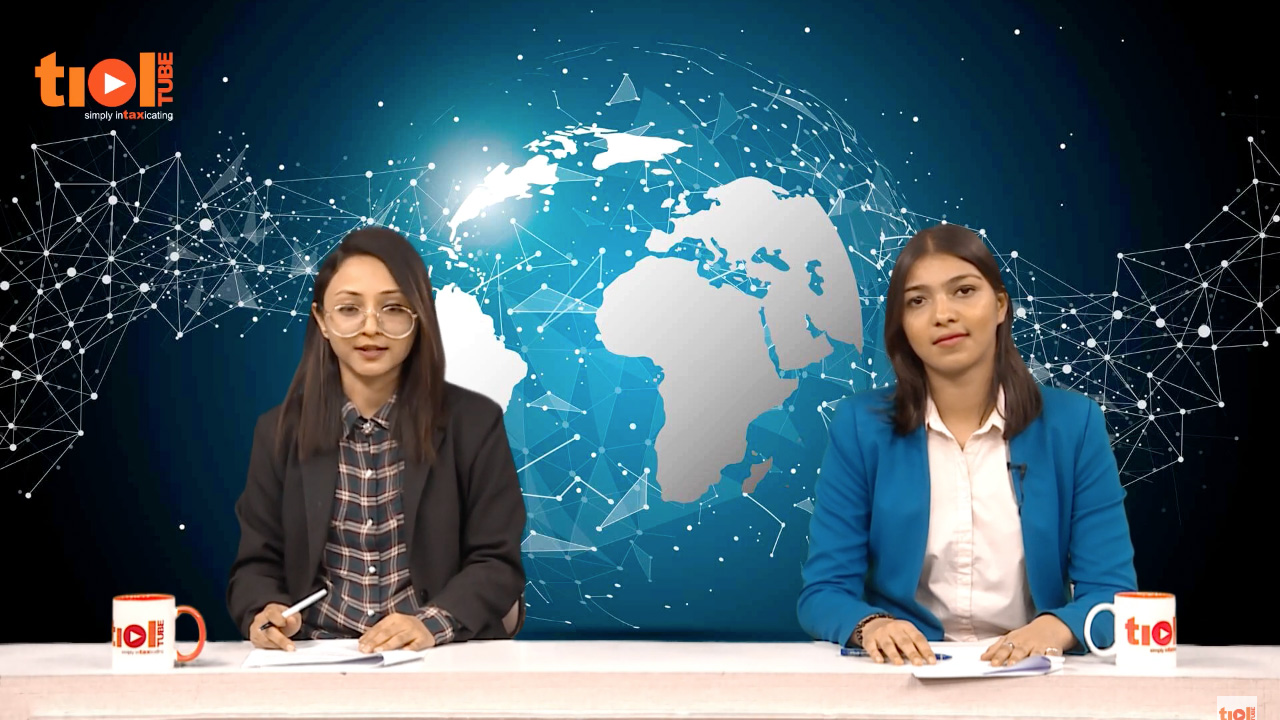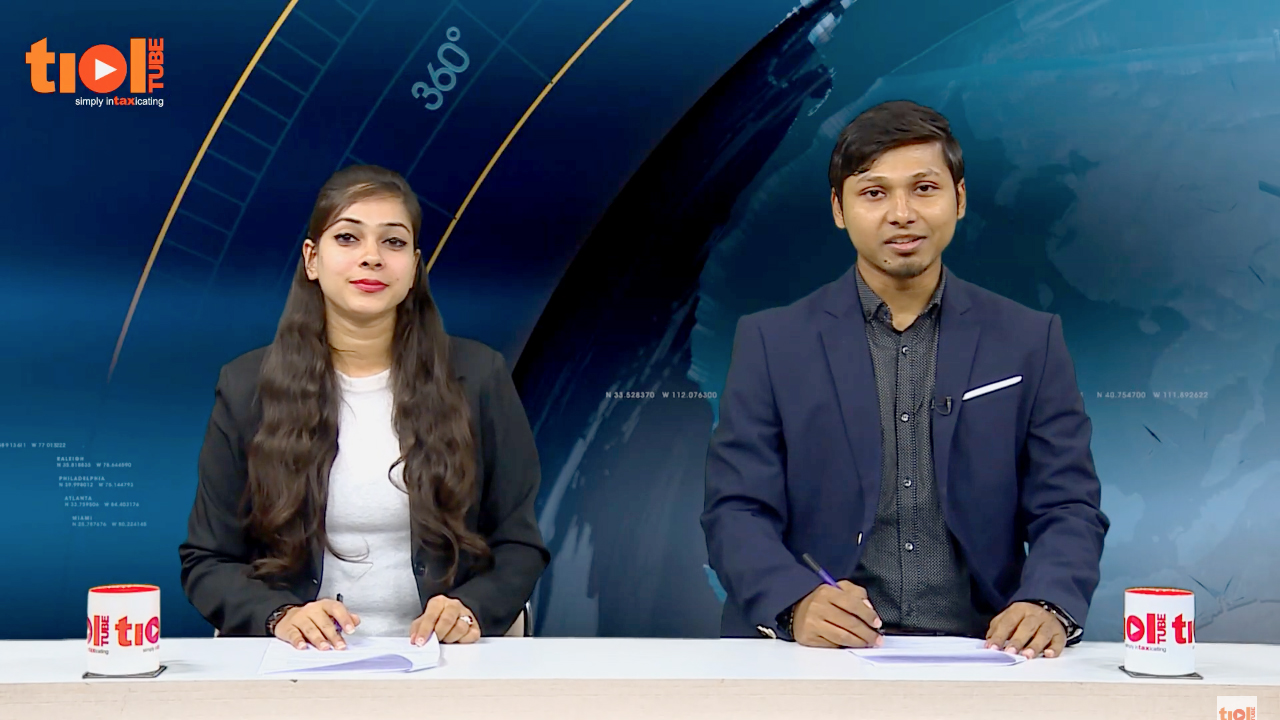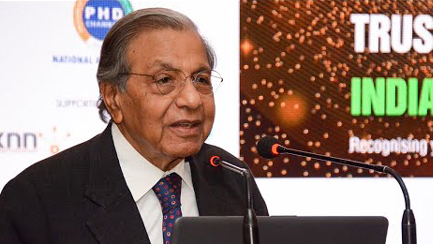2019-TIOL-2895-HC-DEL-CX
Hotel Mela Plaza Vs CCE
CX - Sabka Vishwas (Legacy Dispute Resolution) Scheme - The petitioner seeks permission to withdraw the present petition to seek resolution of the matter under the Sabka Vishwas (Legacy Dispute Resolution) Scheme, 2019, which was created for settlement of tax disputes Central Excise - Hence if application is filed by the petitioner under such scheme, the same may be decided by the authorities in accordance with the rules and regulations after permitting an opportunity of personal hearing to the petitioner: HC
- Assessee's appeal disposed of: DELHI HIGH COURT
2019-TIOL-2894-HC-MAD-CX
Aeon Formulations Pvt Ltd Vs CCE
CX - Appellant, apart from being a manufacturer of pharmaceutical products also traded in pharmaceutical products -During the period in dispute, the appellant had availed Cenvat Credit to an extent of Rs.2,25,493/- based on the invoice issued by a second stage dealer of the goods and passed on the same to 8 manufacturers - It is contention of the revenue that having purchased the goods from the second stage dealer, the appellant ought not to have passed on input credit on the strength of a CENVATABLE excise invoice and, therefore, the appellant was liable to pay the penalty equivalent to the benefit that was available to the buyers on account of the invoice issued by the appellant - Alleging that the appellant had wrongly passed the credit to its customers, SCN was issued on 20.07.2014 - however, when the alleged mistake was pointed out, appellant promptly reversed the credit, together with interest - adjudicating authority imposed equivalent penalty on appellant u/r 26(2)(ii) of CER and which has been sustained by appellate authorities, therefore, assessee in appeal before High Court.
Held:
+ From a reading of the sub-sections (3) and (4) to Section 37 of the CEA, 1944, it is evident that penalty under Rule 26 of Central Excise Rules, 2002 is traceable to power vested with the Rule making authority under Sub-clause (3) and not under Sub-clause (4) of Section 37 of the CEA, 1944 and, therefore, maximum penalty which can be imposed is only Rs.5000/- under Rule 26 of the CER, 2002 - Even otherwise, clause (ii) to Sub- Rule (2) to Rule 26 fixes a statutory minimum of Rs.5000/- and a maximum penalty equivalent to an amount of the benefit which user of such invoice avails or was likely to avail - There is nothing in the provision which mandates the authority to impose maximum penalty equivalent to the benefit passed on under all circumstances - The words "not exceeding" employed in Rule 26 of CER, 2002, in the opinion of the Bench gives a range of amount of penalty from minimum to maximum - Fair amount of discretion has been vested with an adjudicating authority under the aforesaid provision as otherwise there was no necessity to use the expression "whichever is greater" in Rule 26 of CER, 2002 - There is also no provision for recovering the credit wrongly passed on from a person like the appellant except to impose penalty under Rule 26 of CER, 2002: High Court [para 20, 21, 23]
+ For the present case, it will suffice to state that the penalty under Rule 26(2)(ii), is relatable only to penalty under Section 37(3) of the Central Excise Act, 1944 and, therefore, there is no scope to levy penalty above Rs.5000 under Rule 26(2)(ii) of the Central Excise Rules, 2002 when read in harmony with Section 37(3) of the Central Excise Act, 1944: High Court [para 35]
+ Appellant has not committed any fraud - The appellant has also compensated the revenue for any perceived loss to the revenue - Rule 26(2) is intended only to target those manufacturers and dealers who create fictitious invoice/documents to enable a buyers to wrongly avail ineligible of Cenvat Credit without actual supply by them or removal of goods: High Court [para 36]
+ The fact that the appellant is a manufacturer also indicates that as a manufacturer, the appellant was liable to pay duty at the time of removal under Rule 3(5) of the CCR, 2004 which the appellant has done: High Court [para 37]
+ Intention of the rule making authority under Rule 26 of CER is not to recover the amount more than once, ie. once from the person like the appellant who has purportedly passed on such ineligible credit wrongly and again from the buyer - Rule 14 of CCR, 2004 can be pressed into service only against buyer who wrongly avails such ineligible credit - The power to recover the amount under Rule 14 of Cenvat Credit Rules, 2004 is not contemplated against persons like the appellant - It is also nowhere stated that the appellant had wrongly availed credit: High Court [para 39]
+ Since the appellant has paid the duty/ Cenvat Credit twice, first at the time of removal of goods by issuing Central Excise invoice by debiting the Cenvat Credit Account and thereafter once again for the second time before issue of show cause notice together with interest, the imposition of penalty under Rule 26 of the Central Excise Rules, 2002, will have to be construed as excessive: High Court [para 41]
+ At best, the Asst Commissioner ought to have appropriated the amount paid by the appellant towards penalty and not levied penalty separately under Rule 26 of the Central Excise Rules, 2002 - Reversal along with interest itself was penal in nature and, therefore, the appellant should not have been called upon to pay additional penalty once again: High Court [para 42]
+ Therefore, imposition of the 100% penalty under Rule 26 of the Central Excise Rules, 2002 was in view (of the Bench) excessive under the circumstances, as the alleged ineligible credit wrongly passed on to buyers by the appellant is not only recoverable by the jurisdictional Central Excise Officer from the buyer's end under Rule 14 of the Cenvat Credit Rules, 2004, but also because the appellant has paid the amount together with interest before the issue of Show Cause Notice - There is also no provision under the Rules to recover ineligible credit purportedly passed on to the buyers from a person like the appellant: High Court [para 43]
+ To do justice, penalty imposed on the appellant under Rule 26 of the Central Excise Rules, 2002 be reduced to a token penalty of Rs.5,000/- in consonance with Section 37(3) of the Central Excise Act, 1944: High Court [para 45]
- Appeal partly allowed: MADRAS HIGH COURT
2019-TIOL-3608-CESTAT-MUM
CCE Vs Atlas Copco India Ltd
CX - CENVAT - Services of Event Management are availed in or in relation to the manufacture of final goods directly or indirectly; they are conducted for promotion of the products of the company - such services are Input services under rule 2(l) of CCR, 2004 and credit cannot be denied - Bombay High Court decision in Ultra Tech Cement Ltd. - 2010-TIOL-745-HC-MUM-ST relied upon: CESTAT [para 3]
CX - There are conflicting decisions with regard to admissibility of credit used in relation to trading activities - appellants bonafidely believed that they are entitled to avail Input service credit relating to use in relation to trading activities - non-levy of penalty u/s 11AC of the CEA, 1944 is, therefore, proper and legal: Revenue appeal is dismissed: CESTAT [para 4, 5]
- Appeal dismissed: MUMBAI CESTAT
2019-TIOL-3605-CESTAT-DEL
Kanchan India Ltd Vs Commissioner Audit CGST & CE
CX - The assessee is engaged in manufacture of yarn and fabric and have been availing Cenvat credit on capital goods in accordance of CCR, 2004 - During audit, department observed that they have wrongly availed Cenvat credit on capital goods during the period from 30.06.2011 to 30.06.2013 - It was observed that the said credit has been availed on strength of invoices which are in the name of other unit of same group - Accordingly, vide SCN, the said amount of Cenvat credit alleged to be wrongly availed was proposed to be recovered along with interest at the appropriate rate and the proportionate penalty - Since the order challenged is on the limited ground of limitation, the adjudication is confined only to the said aspect - The original adjudicating authority passed an order confirming the proposed demand against assessee, which admittedly was received by them on 31.12.2016 - The appeal in hand admittedly and apparently was filed after 95 days from the said date of receipt of the order - In view of Section 35 of CEA, 1944, the appeal before Commissioner (A) has to be filed within 60 days of the receipt of the order - It is perused from the order-under-challenge that Commissioner (A) gave a personal hearing to the assessee on 10.04.2018 - The order of Commissioner (A) is silent about any reason to have been given by assessee for the impugned delay - Perusal of copy of the appeal as was filed before Commissioner (A) shows that it is only Clause (IV) of prayer clause where the assessee has quoted the reason of delay in filing appeal before Commissioner (A) mentioning that the person who was handling the matter of Excise has left the job without any prior notice - The said reason has not been considered sufficient for condoning the delay by the Commissioner as can be opined from the silence in the order to that aspect - The reason is not sufficient to condone the delay - The assessee has failed even to specify the name of concerned person and the date when he would have left the job - Above all, Commissioner (A) has no statutory power to condone the delay beyond 90 days - The present appeal has been filed beyond said 90 days - Accordingly, no infirmity found in the order of Commissioner (A) - Support drawn from the case of Supreme Court in Singh Enterprises - 2007-TIOL-231-SC-CX - As a result, appeal stands dismissed, not only for want of prosecution but also on merits of the case: CESTAT
- Appeal dismissed: DELHI CESTAT
2019-TIOL-3604-CESTAT-AHM
Multi Scaff India Vs CCE & ST
CX - The assessee received Methanol, a raw material under job work challan from various principal manufacturers and carried out process of converting into Formaldehyde - The said processed Formaldehyde was returned to principal manufacturers under the job work challan and the same was duly accounted for in the statutory registers - Based upon the audit objection, the department denied benefit of Notfn 214/86-CE to the assessee on the ground that principal manufacturers have not complied with the conditions stipulated in said notfn inasmuch as the principal manufacturers have not filed required undertaking - The demand was confirmed for the longer period - It is a claim of assessee that said job worked goods were used in manufacture of dutiable final products - To this effect, the assessee submitted affidavit given by Principal Manufacturers - If it is found that job worked goods were used in manufacture of final products by Principal Manufacturer and the said final product is cleared on payment of duty, assessee is clearly entitled for exemption Notfn 214/86-CE - As regards the undertaking required to be submitted, in the said undertaking also the Principal Manufacturer has to undertake that job worked goods will be used in manufacture of final product which shall be cleared on payment of duty for the home consumption and/ or for the purpose of export - Therefore, on verification, if it is established that final products wherein the job worked goods i.e. Formaldehyde was used, has been cleared on payment of duty in the home consumption and/ or cleared for export without payment of duty under Bond then, assessee's manufacture on job work basis is clearly covered by exemption Notfn 214/86-CE - It is also observed that the assessee have submitted affidavit which was not taken stock of by Adjudicating Authority - The undertaking even if it is found not filed, for the job work assigned, exemption cannot be denied - Since the Adjudicating Authority has not verified the facts regarding nature of clearances of final product by Principal Manufacturers that, for the home consumption on payment of duty and/ or export under Bond, the matter needs to be remanded for the limited purpose of this verification and all other issues raised by assessee are kept open - Matter remanded to the Adjudicating Authority for passing a fresh order: CESTAT
- Matter remanded: AHMEDABAD CESTAT






ADAHEAD_15.jpg)

